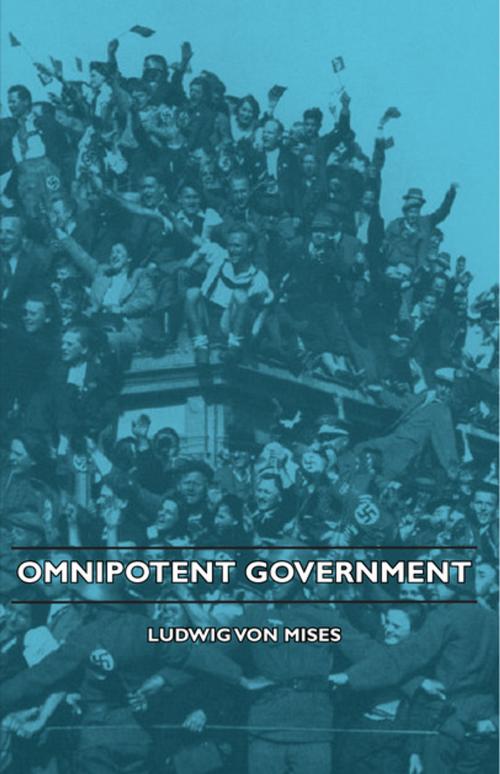Omnipotent Government
Nonfiction, Social & Cultural Studies, Political Science, Politics, History & Theory, History, Modern, 20th Century| Author: | Ludwig Von Mises | ISBN: | 9781446545591 |
| Publisher: | Read Books Ltd. | Publication: | April 16, 2013 |
| Imprint: | Lowe Press | Language: | English |
| Author: | Ludwig Von Mises |
| ISBN: | 9781446545591 |
| Publisher: | Read Books Ltd. |
| Publication: | April 16, 2013 |
| Imprint: | Lowe Press |
| Language: | English |
Liberty is not, as the German precursors of Nazism asserted, a negative ideal. Whether a concept is presented in an affirmative or in a negative form is merely a question of idiom. Freedom from want is tantamount to the expression striving after a state of affairs under which people are better supplied with necessities. Freedom of speech is tantamount to a state of affairs under which everybody can say what he wants to say. At the bottom of all totalitarian doctrines lies the belief that the rulers are wiser and loftier than their subjects and that they therefore know better what benefits those ruled than they themselves. Werner Sombart, for many years a fanatical champion of Marxism and later a no less fanatical advocate of Nazism, was bold enough to assert frankly that the Führer gets his orders from God, the supreme Führer of the universe, and that Führertum is a permanent revelation.* Whoever admits this, must, of course, stop questioning the expediency of government omnipotence. Those disagreeing with this theocratical justification of dictatorship claim for themselves the right to discuss freely the problems involved. They do not write state with a capital S. They do not shrink from analyzing the metaphysical notions of Hegelianism and Marxism. They reduce all this high-sounding oratory to the simple question: are the means suggested suitable to attain the ends sought? In answering this question, they hope to render a service to the great majority of their fellow men.
Liberty is not, as the German precursors of Nazism asserted, a negative ideal. Whether a concept is presented in an affirmative or in a negative form is merely a question of idiom. Freedom from want is tantamount to the expression striving after a state of affairs under which people are better supplied with necessities. Freedom of speech is tantamount to a state of affairs under which everybody can say what he wants to say. At the bottom of all totalitarian doctrines lies the belief that the rulers are wiser and loftier than their subjects and that they therefore know better what benefits those ruled than they themselves. Werner Sombart, for many years a fanatical champion of Marxism and later a no less fanatical advocate of Nazism, was bold enough to assert frankly that the Führer gets his orders from God, the supreme Führer of the universe, and that Führertum is a permanent revelation.* Whoever admits this, must, of course, stop questioning the expediency of government omnipotence. Those disagreeing with this theocratical justification of dictatorship claim for themselves the right to discuss freely the problems involved. They do not write state with a capital S. They do not shrink from analyzing the metaphysical notions of Hegelianism and Marxism. They reduce all this high-sounding oratory to the simple question: are the means suggested suitable to attain the ends sought? In answering this question, they hope to render a service to the great majority of their fellow men.















